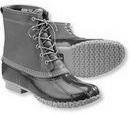My great-great-grandfather, Charles Lewis Francis, arrived from Wales in 1860, at age 17, and shortly thereafter participated in the action of the Civil War. In 1879, he wrote and published a memoir of this period. I’ve scanned in the text and made it available as raw PDF scans and as an incomplete full-text PDF. As I correct the OCR’d chapters, I’ll be posting the sections to my blog. This is the first section of Chapter I.
Chapter I: From the outbreak of the war until about June, 1862, and while, although I was not yet a soldier, I was much with the army, and in the field.
Riots in Baltimore
When the war broke out, say in the month of April, 1861, I was residing with my uncle in Baltimore and Washington; that is to say, business was done in the former city, while the residence was at the capital. On the 19th of that month occurred the bloody riot in Baltimore, during which six or seven men of the Sixth Regiment of Massachusets Infantry were killed or wounded. The next two days (Saturday and Sunday) were days of terror. No one knew what was to come next. Regiments were hastily formed out of workmen from the various shopes. “Ross Winan Guards” was the name of a battalion formed by the enlistment of men in the employ of the great inventor. That, and other regiments and companies paraded the streets in hastily manufactured uniforms of various colors and meterials, and armed with a great variety of weapons.
On Friday night a company of the 6th Maryland State Guard proceeded to the President street depot, and after compelling the men of an unarmed regiment (the Twenty-sixth Pennsylvania Colonel Stone) to retrace their steps to Philadelphia, the soliders of the Sixth Maryland Guard, accompanied by a large but well organized mob, proceeded to the Gunpowder river, where they set fire to and destroyed a railroad bridge, and I believe they also at the same time scuttled and sunk the great railroad ferry-boat “Maryland,” on the Susquehanna river at Havte-degrace. Besides this, all communication by telegraph between the city and the outside work was cut off, excepting a line to Harper’s Ferry, but that wire was kept open solely in the interest of those whose sympathies were against the Federal Govenment and in favor of the Southern people.
Saturday the city was altogether in the hands of the mob. Stores, especially such as contained arms and those holding provisions, were broken open and ruthlessly rifled of their contents. All kinds and descriptions were seized in the general levy. It was not unusual to meet a band of rag-a-muffins armed with single and double-barrled shotgus, rifles, long and short, and a variety of swords, sabres, and cutlasses all in one company. Few persons slept that night. Owners of houses, stocks of goods, jewellers, bankers, and all were alike in great fear for the safety of the valuables they were possessed of or had under their control. Sunday morning broke into a beautiful spring day. The sun shone warm and genial. Still there was no abatement of the excitement. The church bells rang incessantly, but not for the purpose of calling worshippers. All stated Divine services were suspended, and the wild clanging of the bells were but signals for all persons capable of bearing arms to assemble at the various places of rendezvous, and there be sworn in and armed as citizen soldiery. One Kane — he was styled “Marshal Kane” — seemed to be to be in the chief control, and, when I went to the police station, or other public building on Holiday street, I think, he was actively engaged in superintending the mustering of men and the issuing of arms to them afterward.
All the forenoon, the city was rife with rumors, “Troops from the hated North were at Cockeysville,” a town on the Central Railroad; “Regulars were advancing from Carlisle”; “The Yankees of the city were secretly congregating among the hills and valley of Druid Hill Park,” near the town, and all sorts of such exciting rumors were mouthed around by one crowd to another. About noon more soldiers came. These were from the adjacent counties and composed of the ancient militia, rejuvenated in flesh, but not at all in make-up or appearance. They were, each company, dressed in different costumes, but all held close to the original continental style, and I would not demand much for venturing the assertiong that many of the uniforms worn had been preserved from that period. It was said that the Governor had secreted his person, and therein he acted the part of prudence if he was in the city at all. One crowd were very desirous of hanging him for a “Union man”; another wanted him to issue a proclamation calling the militia into active service “to protect the soil of Maryland from the Northern invader,” while still another motley gang, composed of the “Anne Arundel Militia,” went to the Fountain Hotel, where the State Executive was supposed to be in hiding, and there clamored with drunken vehemence for authority to go and demand the evacuation by the United States forces of the neighboring Fort McHenry. Not succeeding in getting any such authority, the gallant troopers proceeded to the Entaw House, and from thence, having first got more gloriously drunk, they went on their self-imposed mission without a mandate. The expedition ended in a disgraceful retreat or a ludicrous farse — I do not know how to properly designate it. I saw the best of it, and have attempted to describe it in another place.
More information on these events: a contemporaneous account from the New York Herald.
